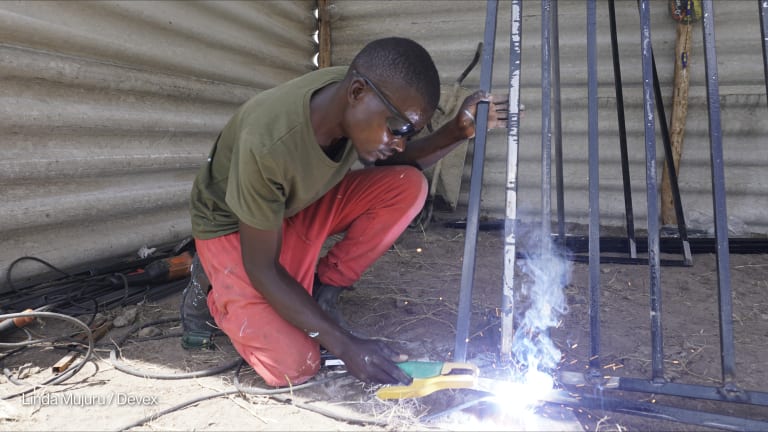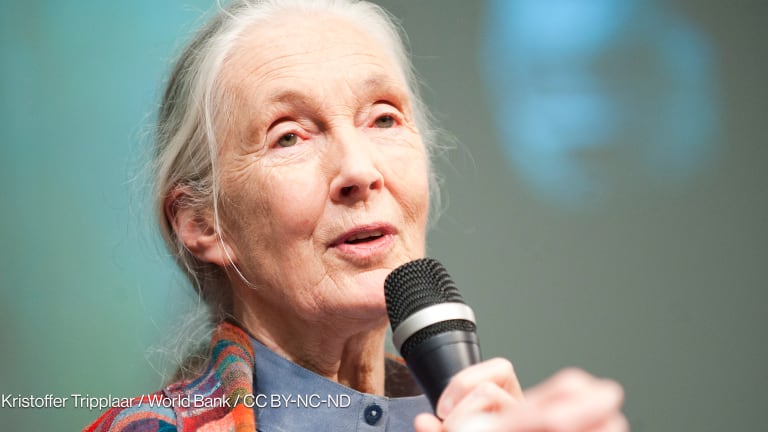
We live in a unique, urgent, and critical moment. Across the world, today’s youth population is the largest in history. Half of the world’s population is younger than 30, with 9 of 10 of these young people living in the developing world. These numbers will not last, however, as the global youth population will begin to shrink later this century.
We are living in an era of peak youth and it’s not going to last forever. We have only a short window to wake up and make the most of this opportunity.
However, while the development sector loves to talk about “doing development differently,” rarely is meaningful youth and community leadership a part of the solution.
Too often, the agency of youth and communities to lead change is side-lined, with the majority of the world’s population — young people and community members — treated as “beneficiaries” of development rather than active partners and leaders of change. This pattern is replicated at the institutional level, where capacity development of southern civil society all too often takes the form of training in how to be effective sub-grantees, and grassroots youth and community organizations by and large fail to benefit from the management fees absorbed at each stage of the funding cascade from development partner to large INGO to implementing partner and down to the grassroots.
Caught in a vicious cycle of project delivery and “capacity building,” it is no wonder that the majority of youth-led and youth-focused organizations report that they will be out of business within a year on their current budgets.
Yet, we know that we will not solve some of the biggest challenges of our time without the leadership of half the world’s population.
Let me share a figure. Over the next decade, 1 billion young people are projected to enter the job market. An estimated 400 million will find jobs waiting for them, meaning that 600 million young people will not. To be frank, there’s no amount of macroeconomic growth or development-funded job schemes that will meet this gap. Not if we mean a bunch of three-year programs designed for young people to access or create jobs in the current economic system. But if we flip the question on its head and ask those 600 million to teach us how they are getting by, how they understand economic activity, what barriers and opportunities they perceive, how they build resilience and strength in their lives, and how decent work opportunities can be generated to bring the skills, agency, and leadership to bear — well, then we have the chance to get it right and in so doing reshape both our development sector and world more broadly.
As a raft of studies have shown, today’s youth generation is better connected, more tech-savvy, taking action to reshape their societies in ways not seen before, more civically active, and more values-led. Young people are ready now, embedded in communities around the world, more available, and more disposed to lead change than other ages. Crucially, this is about the scale of change we hope to achieve. Young people can offer that dramatic scale. They can be the differentiator for a development sector that still struggles to go beyond the delivery and reporting of impact into models that create long-term, sustainable change.
That’s because we are not talking about youth simply working for the benefit of youth. Five or 10 years ago, our challenge was to get young people into the room and into decision-making spaces. Since then, young people have been loud and clear: they do not want youth participation to be an end in itself. Indeed young people will often distance themselves from initiatives (and selfies with politicians) that seek only to increase youth participation or visibility as an end. Instead, young people are calling for a leadership role alongside their communities more broadly.
We’ve seen the impact of this kind of leadership first hand in the most dramatic of circumstances (and where a top-down NGO response would often be the norm).
When the Ebola outbreak hit Sierra Leone in 2014, international support and the treatment of infections were essential to save lives, but so too were steps taken by communities to prevent the virus spreading in the first place. After the outbreak, 2,400 trained young volunteers worked with local leaders and their communities to design preventative action plans that would work for them. By the end of 2015 these young volunteers had reached 1.9 million people across 10,000 communities, increasing medical referrals of new cases, reducing unsafe burial practices, as well as stigma and myths. These volunteers were not armed with syringes or stretchers but with information, training, and trust and legitimacy within their communities. When Pujehun became the first district to be declared “Ebola-free” in January, the local district chief praised local youth and the “decentralisation of everybody fighting [Ebola] in their community”.
Following Nepal’s devastating earthquake in 2015, young people quickly stepped in to help map the response. One of the most pressing needs was to provide safe spaces for children and young people, many of whom had been left homeless, traumatized, and at risk. Young volunteers helped set up 500 community learning centers across 14 districts that were most affected by the earthquake. They led sessions in these spaces to help children resume their studies, receive psychosocial counselling, and get life-saving messages through play sessions. They reached hundreds of thousands of children, parents, and teachers, keeping them safe and in education while the country began the long road to rebuild its infrastructure.
With half the world set to be young during the window of the Sustainable Development Goals, the opportunity to radically accelerate progress on the SDGs and to change the landscape of development is obvious. That’s why I am excited and humbled to become the next CEO of Restless Development. Excited at the largely untapped opportunity to bring the biggest youth population to bear on the development challenges of our time. Humbled by the talent, passion, and skill of the young people, staff and partners who make Restless Development what it is. If that’s not reason enough, I don’t know what is.
Read more Devex coverage on Focus On: Youth.








